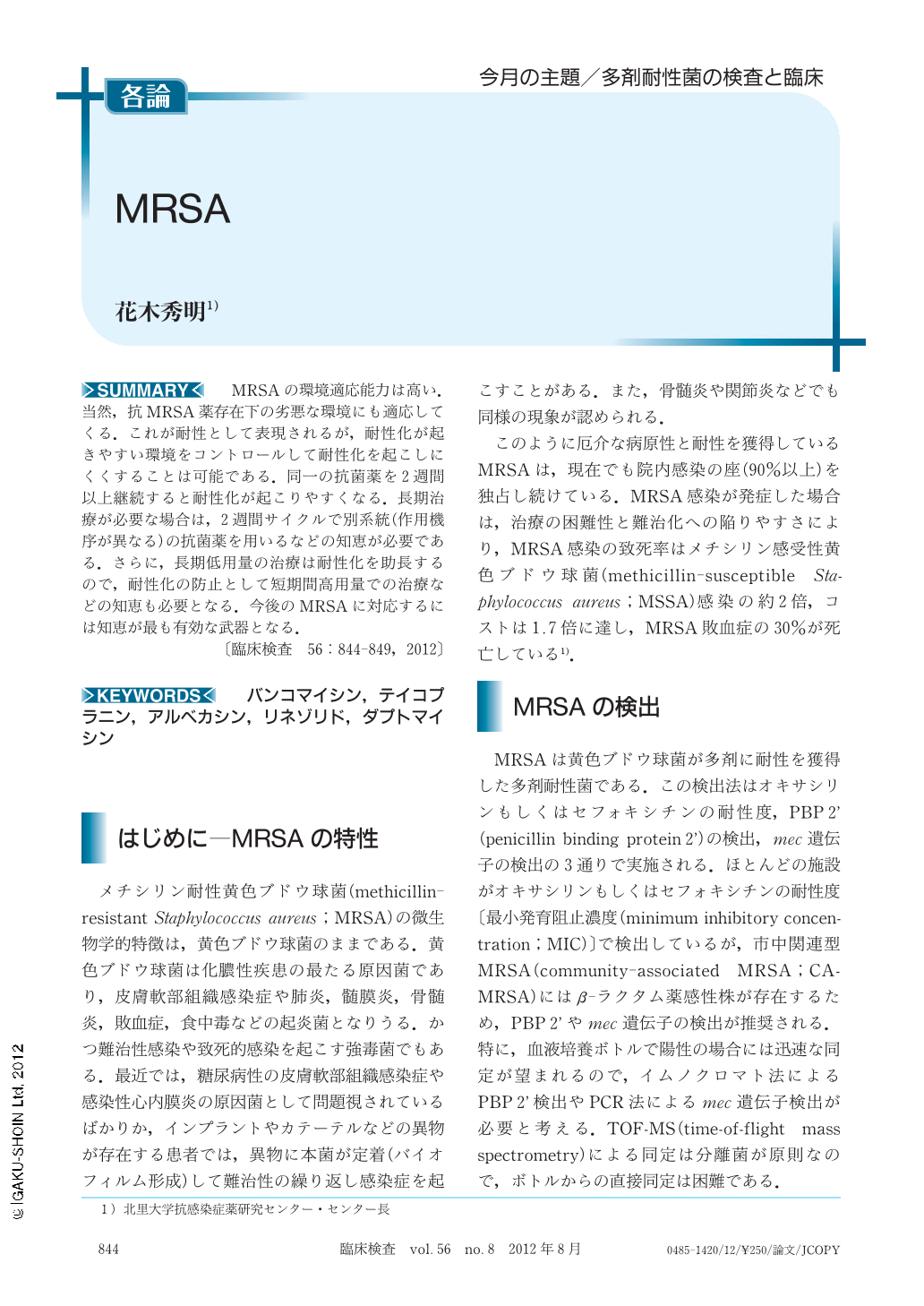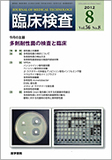Japanese
English
- 有料閲覧
- Abstract 文献概要
- 1ページ目 Look Inside
- 参考文献 Reference
MRSAの環境適応能力は高い.当然,抗MRSA薬存在下の劣悪な環境にも適応してくる.これが耐性として表現されるが,耐性化が起きやすい環境をコントロールして耐性化を起こしにくくすることは可能である.同一の抗菌薬を2週間以上継続すると耐性化が起こりやすくなる.長期治療が必要な場合は,2週間サイクルで別系統(作用機序が異なる)の抗菌薬を用いるなどの知恵が必要である.さらに,長期低用量の治療は耐性化を助長するので,耐性化の防止として短期間高用量での治療などの知恵も必要となる.今後のMRSAに対応するには知恵が最も有効な武器となる.
MRSA (methicillin-resistant Staphylococcus aureus) is one of bacteria known to have a high ability to adapt to harsh conditions, which is shown by its acquisition of antibiotic resistance. Despite efforts of scientists to synthesize more potent antibiotics during the last several decades, antibiotic resistance continues to evolve, mainly because of the misuse and overuse of antibiotics. MRSA is resistant to almost all commonly used antibiotics, and is likely to soon become resistant to newly developed antibiotics. The most effective solution to preserve the activity of the current antibiotic armamentarium would be improving the use of antibiotics. Appropriate antibiotic use includes selection of a target-spectrum antibiotic, combination therapy with different classes of antibiotics, as well as finding an appropriate duration and dose and determining the correct duration of its use.

Copyright © 2012, Igaku-Shoin Ltd. All rights reserved.


